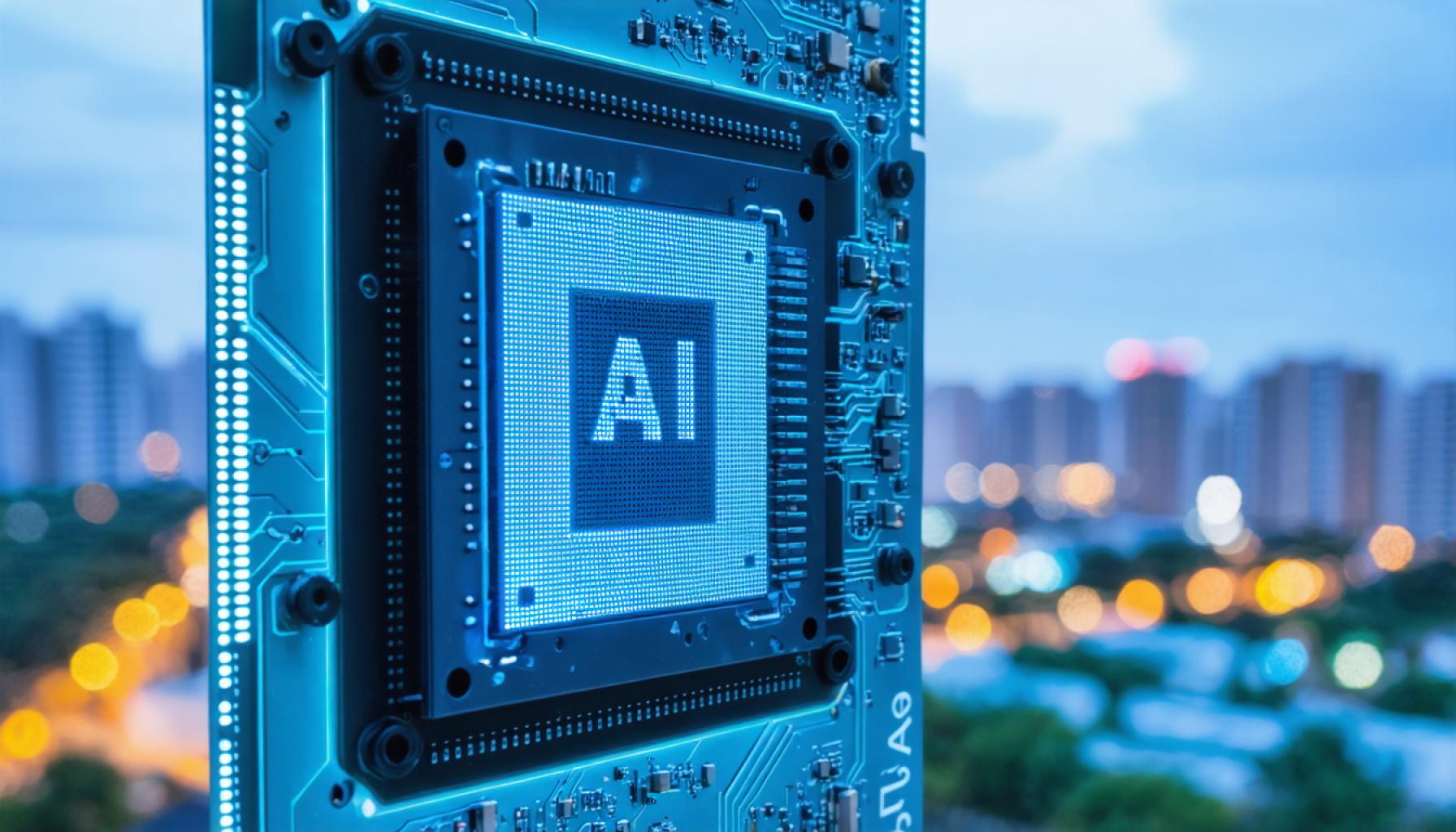- Billionaire hedge fund managers, such as Philippe Laffont, are unveiling their investment strategies.
- Laffont’s Coatue Management invested $120 million in Taiwan Semiconductor Manufacturing (TSMC), making it his third-largest portfolio holding.
- TSMC is a leading chip manufacturer, supplying tech giants like Nvidia and Apple, while maintaining neutrality in the competitive chip market.
- The company is central to the AI revolution, with anticipated 45% annual growth in AI-related chips over the next five years.
- Despite strong growth prospects, TSMC is valued at just 22.4 times forward earnings, similar to the S&P 500, presenting a strategic investment opportunity.
- Investors are encouraged to recognize TSMC’s potential undervaluation and align with visionary investors ahead of the AI-driven future.
The financial world reels as billionaire hedge fund managers reveal their strategies to the public, offering a rare glimpse into their investment blueprints. Philippe Laffont’s Coatue Management has made waves with a hefty addition to its portfolio: a $120 million investment in Taiwan Semiconductor Manufacturing (TSMC). This strategic move positions TSMC as the third-largest holding in Coatue’s portfolio, underscoring Laffont’s confidence in the world’s leading contract chip manufacturer.
TSMC crafts the essential silicon hearts of the world’s technological giants, such as Nvidia and Apple, without playing favorites in the fiercely competitive chip arena. This neutrality allows TSMC to tap into a wide clientele, boosting its reputation as the preeminent chipmaker. The company stands at the epicenter of the AI revolution, anticipating a staggering 45% annual growth rate for its AI-related chips over the next five years—a barometer, perhaps, of how pivotal AI will become.
Despite these promising forecasts, the market has been cautious, valuing TSMC as if it were an average contender. Currently priced at just 22.4 times forward earnings, it mirrors the S&P 500’s valuation, offering a potential goldmine for savvy investors like Laffont. With its robust growth expectations and unrivaled chip manufacturing capabilities, TSMC emerges as a compelling opportunity in the ongoing AI arms race.
For investors, the challenge is clear: grasp the potential of TSMC’s undervaluation and align with the foresight of billionaires like Laffont. As AI continues to reshape industries, Taiwan Semiconductor holds the keys to a technology-rich future, waiting for those bold enough to seize it.
Unlocking Wealth: How Smart Investors Can Thrive in the AI Revolution with TSMC
How-To Steps & Life Hacks for Investing in TSMC
1. Understand the Market Dynamics: Before investing in TSMC, gain a comprehensive understanding of the semiconductor industry’s trends and how AI technologies influence demand.
2. Analyze Financial Metrics: Evaluate TSMC’s financial health by examining key metrics, like profit margins, debt levels, and cash flow. Understanding these can highlight TSMC’s stability and growth potential.
3. Portfolio Diversification: While TSMC presents an exciting opportunity, it’s crucial to diversify your portfolio to mitigate risks. Consider a balanced approach with investments across various sectors.
4. Stay Informed about AI Developments: The AI field is rapidly evolving. Keep updated on new advancements and potential changes in artificial intelligence.
5. Leverage Expert Opinions: Follow insights from financial analysts and investors with a successful track record to refine your investment strategy.
Real-World Use Cases
– Tech Industry Growth: With clients like Apple and Nvidia, TSMC’s chips are essential for powering devices and graphics cards, underpinning the tech surge.
– AI Infrastructure: As AI applications expand, TSMC’s chips will be critical in data centers and AI-driven platforms.
Market Forecasts & Industry Trends
The global semiconductor industry is poised for significant expansion, driven by AI and machine learning. TSMC’s projected 45% annual growth rate in AI-related chips indicates strong market confidence. Analysts predict the semiconductor market could exceed $1 trillion by 2030, anchored by innovation in AI technology.
Reviews & Comparisons
– TSMC vs. Competitors: TSMC leads in advanced processing technologies, with competitors like Samsung and Intel investing heavily to catch up. However, TSMC’s neutral client relations and consistent innovation provide a competitive edge.
Controversies & Limitations
– Geopolitical Risks: Being headquartered in Taiwan, TSMC faces potential geopolitical tensions. Investors should remain cautious and aware of political dynamics that could affect operations.
Features, Specs & Pricing
– Pricing: Trading at 22.4 times forward earnings, TSMC is priced comparably to the S&P 500 but with higher growth potential.
– Chip Technology: Known for its cutting-edge 5nm and 3nm processes, TSMC is set to lead the market in next-gen chip manufacturing.
Security & Sustainability
– Data Security: TSMC is crucial in the secure production of chips used globally, adhering to industry standards.
– Sustainability Practices: TSMC focuses on reducing carbon emissions and water usage in manufacturing, emphasizing eco-friendly initiatives.
Insights & Predictions
TSMC is anticipated to remain at the forefront of technological advancement in the semiconductor industry, influencing sectors from consumer electronics to AI. Investors looking to capitalize on AI trends may find TSMC a robust long-term asset.
Tutorials & Compatibility
– Investing Tools: Utilize platforms like E*TRADE or Robinhood to buy TSMC shares. Follow technical analysis on tools such as TradingView to better time market entry.
Pros & Cons Overview
Pros:
– Leading technological edge in chip manufacturing
– Strong client base and industry reputation
– Poised for growth with AI market expansion
Cons:
– Geographic and geopolitical risks
– High capital expenditure requirements
Actionable Recommendations
– Consider Long-term Investment: Given TSMC’s role in AI growth, it’s wise to consider it a long-term hold rather than seeking short-term gains.
– Watch for Market Trends: Continuously analyze trends that might impact TSMC, such as changes in technology demand or geopolitical developments.
For further insights and up-to-date information on investment strategies, visit Forbes.











